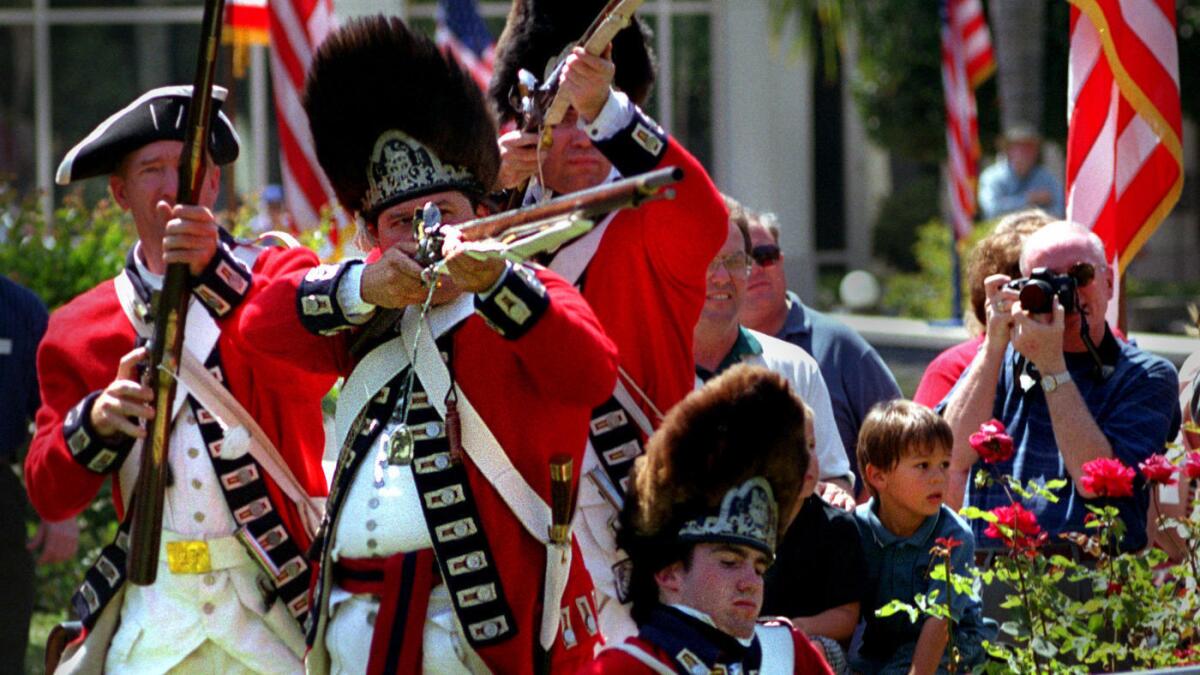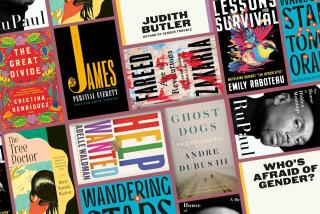Three books on the revolutions that America’s uprising helped spawn

- Share via
One of my favorite lines about American history comes from a French Canadian movie. It’s in “The Barbarian Invasions” and it is spoken by a left-wing Canadian history professor who is dying. He takes a moment to marvel at the all-star team of thinkers and politicos who gave birth to the United States.
“Adams, Franklin, Jefferson, Washington, Hamilton and Madison,” the professor says. “No other country has been so blessed.”
Beyond the Boston Tea Party, and “the shot heard around the world,” and assorted military triumphs, the American Revolution was an event in history with deep intellectual roots. The Revolution’s ideas quickly circled around the globe.
Some of my favorite books take up the story of the struggle for liberty and the pursuit of happiness in places far from the shores of the 13 colonies, as men with muskets, women at barricades and the occasional uncontrollable mob, all worked to free themselves from the shackles of bondage.
“The Black Jacobins,” by C.L.R. James. “This is a book you have to read before you die,” a college professor once told me, about C.L.R. James’ classic account of the Haitian Revolution. In one of the few successful slave rebellions in human history, the slaves of Saint-Domingue overthrew their owners and French colonial rulers. They were led by a literate slave, Toussaint L’Overture.
After describing the economic and social crisis that led to the downfall of French rule, James writes that the personality of Toussaint was essential: “Toussaint made the history he made because he was the man he was.” How did bands of self-freed slaves defeat the French colonial army, one of the best equipped of its day, and some assorted mercenaries too? C.L.R. James shows us how.
“Citizens: A Chronicle of the French Revolution,” by Simon Schama. Thomas Jefferson, then the new American republic’s ambassador to France, helped the Marquis de Lafayette write the Declaration of the Rights of Man. That, roughly speaking, is about as far as the similarities between the American and French Revolutions go, as Schama’s massive, detailed but reader-friendly book make clear. I’ve covered a few riots and revolutions in my day, and I’ve learned that the line between the two is a very blurry one indeed.
When you think of the French Revolution, you think of Voltaire and Danton and the pathos and excess of Marie Antoinette. These memorable personalities are in “Citizens” too. But so is the mob outside the Bastille, and other bands of angry commoners. The enemies of the Revolution are beheaded -- and not always by the infamous guillotine, but sometimes by the enraged Parisian masses. Schama shows us how the revolution was an unforgettable combination of idealism and brutality.
“Bolivar: American Liberator,” by Marie Arana. Simon Bolivar, like many of the leaders of the U.S. Revolution, was born to a fairly well-off family. His journey to revolutionary leader began with a sightseeing and philandering trip to Europe, as Arana recounts in this wonderful biography.
Like the French Revolution, the uprising to liberate what would become Colombia, Venezuela, Peru, Bolivia, Panama and Ecuador was a bloody, ruthless conflict, with the attempts to construct democracy less successful than in either France or the United States. Arana explains why, without ever losing sight of the man at the center of her story. Like Jefferson, Bolivar was a wonderful writer, a man whose prodigious linguistic gifts helped to change the Spanish language itself.
More to Read
Sign up for our Book Club newsletter
Get the latest news, events and more from the Los Angeles Times Book Club, and help us get L.A. reading and talking.
You may occasionally receive promotional content from the Los Angeles Times.








